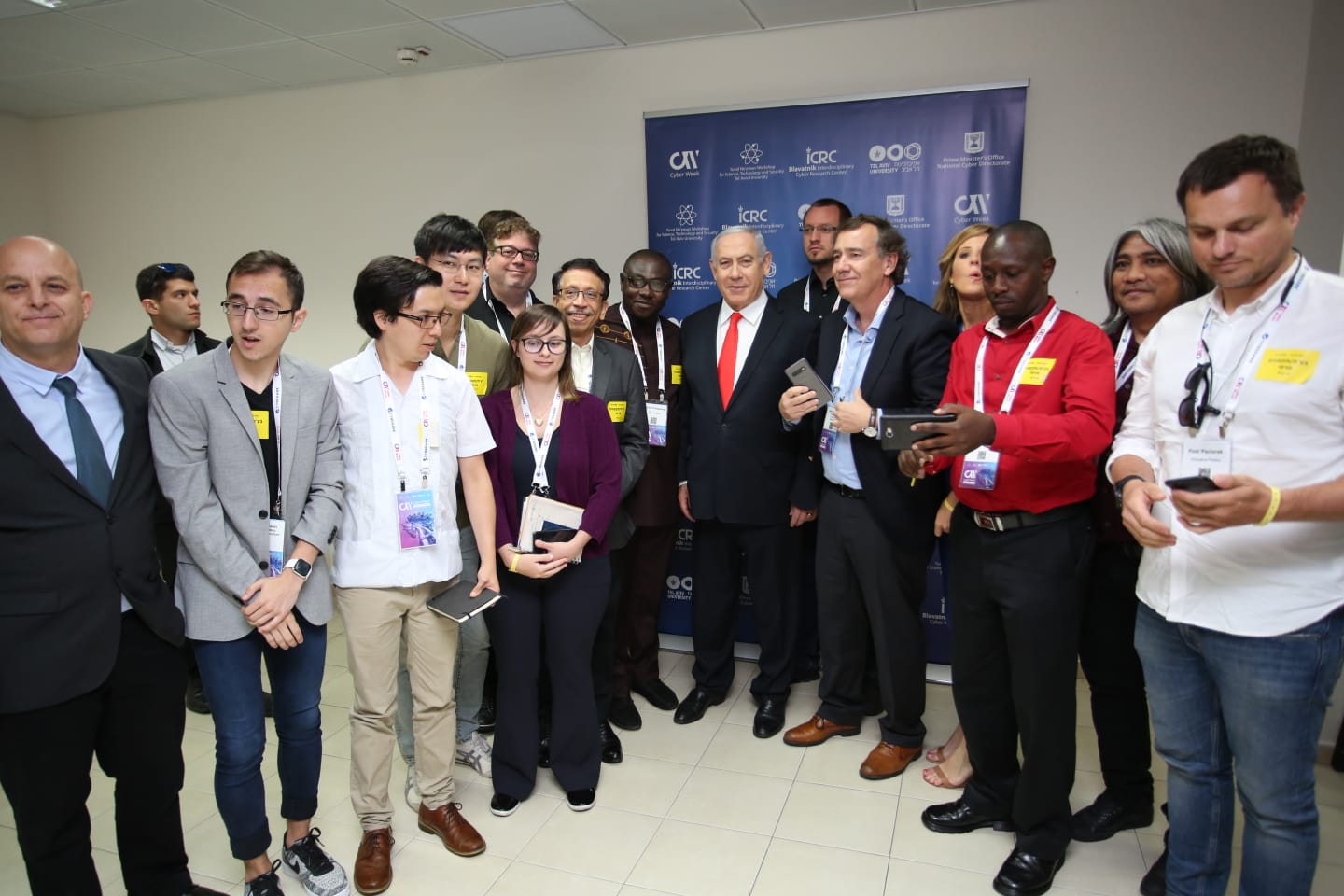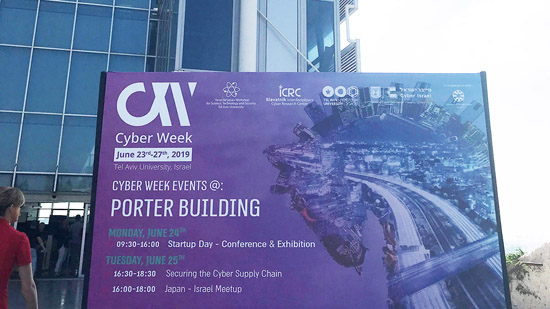
Why Israel is spearheading a global cyber security campaign
In the next 10 years, experts predict that the use of technology for various activities in the cyberspace in many countries around the globe is going to increase tremendously.
Examples such as the use of artificial intelligence (AI), blockchain (distributed database existing on multiple computers at the same time), cyberspace technology in aviation, financial technologies (Fintech), digital health care and smart cities where buildings and vehicles will run on technologies in the cyberspace are going to be the main thing.
Advertisement
For instance, an aeroplane could fly without a human pilot in the cockpit and vehicles could move without human drivers behind the wheel.
Cybercrime
These technologies are supposed to make life very comfortable for humans. However, it may be coming with sophisticated criminal activities which require concerted efforts at the national level to fight.
According to experts, 15 years ago, before the advent of social media such as Facebook, Twitter and WhatsApp, there were little problems with criminal activities in the cyberspace as communication in the cyberspace was mainly through emails.
But in the next 10 years, as new devices are going to enter the lives of people, the experts say they foresee criminal activities increasing through hackable devices, with smart people going to be behind it.
Currently, many people have been associating cybercrime with the leakage of credit card numbers, theft of passwords for access to e-mail and other frauds which are fairly easy to neutralise.
But in the future, criminals can also break into the network of railway lines, airports, refineries, media organisations, car manufacturing companies, power plants and many others and demand ransom or use it to influence campaigns or for destruction. In such cases, the damage could be devastating.
Modus operandi
Cybercriminals are said to be currently working closely together, constantly exchanging information about their potential victims, and if countries and their citizens were to survive, cybersecurity must be simply better than the criminals, and for that there ought to be a global exchange of information.
At last week's 2019 Cyber Week conference in Tel Aviv in Israel, which discussed cybersecurity issues, experts such as Mr Yigal Unna, the Director-General of the Israel National Cyber Directorate (INCD); Mr Mike Rogers, a former Director of the National Security Agency (NSA), a national-level intelligence agency of the United States Department of Defence, who was also a former Head of the US Cyber Command; and Mr Nadav Zafrir, also a former Commander of Israel’s elite Intelligence Unit, 8200, said they foresee influence campaigns, spying, stealing, terrorism through hacking devices and demanding ransom going up in the next 10 years.
For instance, it was noted at the conference that the wave of recent crime perpetrated by smart people such as robbing banks in the cyberspace by hacking into automated teller machines (ATM), bank accounts and electronically transferring funds into dubious accounts was gradually increasing.
Major threats
Gone were the days when criminals stormed banks with guns and forced tellers and bank managers to open vaults and made away with their booty. They are said to be perpetrating such criminal activities in recent times in the cyberspace.
Mr Rogers, for instance, said during a panel discussion at the conference that “the threat is clearly going to get more complicated. The attack surface is growing. You look at the power of AI and machine learning and they’re going to offer great defensive capabilities but also offer attackers many more options. I find myself in the private sector now and one of my takeaways is – why aren’t we using more integrated solutions between the government and the private sector? ….Why don’t we learn from every instance in cybersecurity? We need a model in cybersecurity where the pain of one leads to the benefit of the many”.

Israeli Prime Minister, Mr Benjamin Netanyahu
Israel’s proposal
Israel, for example, is proposing cooperation at State levels in the exchange of information to combat cybercrime and not leave it to individual organisations or companies to handle things by themselves.
The Israeli Prime Minister, Mr Benjamin Netanyahu, in his presentation at the Cyber Week Conference, which is a large annual international cybersecurity event organised and hosted since 2010 at Tel Aviv University, stressed the need for all stakeholders to brainstorm and exchange knowledge on how to secure the cyberspace going into the future.
He said, "We’re encouraging international associations... We have today cooperation first with our great and irreplaceable ally, the United States of America (USA). We cooperate in cybersecurity as never before and in many other fields of intelligence.
Changes in strategy
Mr Netanyahu said the way countries protected against the hijacking of planes in the past was to put armed guards or have security forces ready to burst into hijacked planes.
“Later, a whole industry developed in Israel for mechanised locks on doors for pilots, separating the pilots and maintaining the security of the cockpit and so on. That's one way to deal with hijacking. It was not ineffective. It was good. It was effective but it's very expensive,” he said.
In addition, he said a plane leaving from Sydney to Abu Dhabi was going to be exploded in mid-air by ISIS but Israel, through its cyber activities, alerted Australian police and they stopped it.
“This particular incident leaked in the press so I can talk about it. If you multiply that 50 times, that will give you an idea of the contribution that Israel has made to prevent major terrorist operations, especially by ISIS in dozens of countries. And most of those cases were foiled because of our activities in cybersecurity,” he said.
He maintained that that affected every country and person in the world not only in aviation and transportation but everything.
“Israel has seized the opportunities and is meeting the dangers and we invite you to do the same with us in partnership," he added.

The trojan horse stood tall at the Tel Aviv University as thousands of Cyber Week conference attendees strolled by.
Fighting cybercrime in Israel
The Israeli Cybersecurity Board has launched the "Cyber Net" platform, which helps Israeli companies fight cybercrime.
It has also set up the emergency hotline 119, which is meant for the public to report cybercrimes for prompt assistance at the State level, something that is the first of its kind globally.
When people in Israel think they may be dealing with computer security threats or intrusions, they can just dial 119.
It has also set up the Israel National Cyber Directorate (INCD), responsible for all aspects of cyber defence in the civilian sphere, from formulating policy and building technological power to operational defence in cyberspace. The INCD also provides incident handling services and guidance for all civilian entities, as well as all critical infrastructure in the Israeli economy, and works towards increasing the resilience of the civilian cyberspace.
Ghana’s cyberspace and crime
In Ghana currently, cyber security issues do not seem to be at the forefront of discussions but the criminal activities in the space have started in small ways.
For instance, the spreading of “fake news” on Facebook and WhatsApp as a way of influence campaign, in addition to scamming people through mobile money seems to be on the increase.
Cases of people being defrauded through mobile money with no proper remedies to tracing the fraudsters and getting their funds back has come up in recent times.
This, experts predict, is only a tip of the iceberg, and that bigger crimes moving away from the physical space into the cyberspace in Ghana are to be expected and require concerted efforts to tackle.

Cyber Week
The Cyber Week Conference in Tel Aviv in the last nine years has been bringing leading experts from around the world in the fields of cybersecurity, government, intelligence, professionals, policymakers, entrepreneurs, investors and academics together to brainstorm on the future of technology and how to secure operations.
This year’s week-long conference from June 23 to 27 featured panels, workshops, summits and seminars on topics such as how to offer cybersecurity in artificial intelligence (AI), blockchain (distributed database existing on multiple computers at the same time), aviation, financial technologies (Fintech), digital health care, the cloud, smart cities, cybercrime and more.
Over 8,000 attendees from 80 countries were at the conference which was hosted by the Blavatnik Interdisciplinary Cyber Research Centre (ICRC) in India, Yuval Ne’eman Workshop for Science, Technology and Security, Tel Aviv University, the Israeli Ministry of Foreign Affairs and the National Cyber Directorate at the Israeli Prime Minister’s Office.
Writer's email: [email protected]



